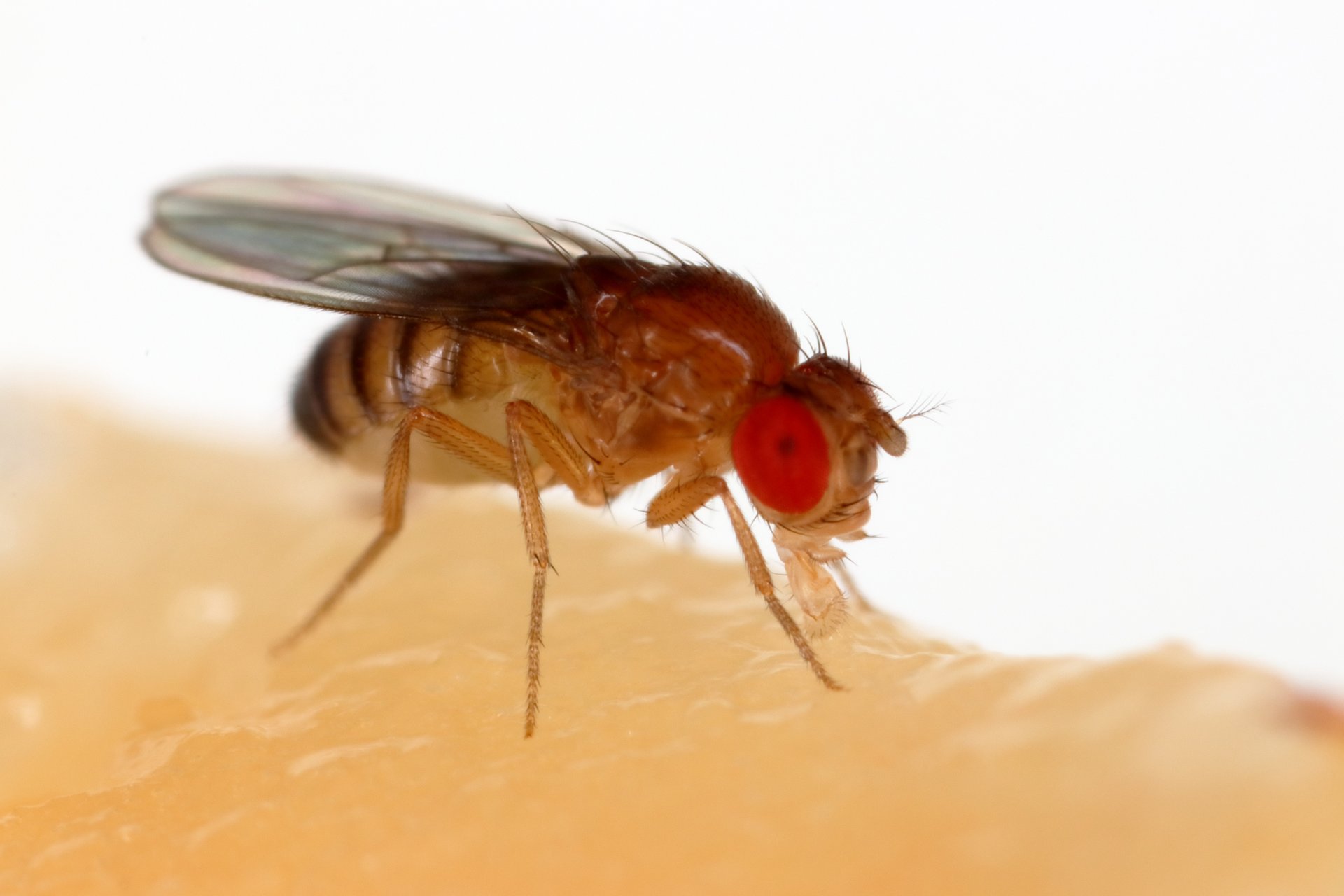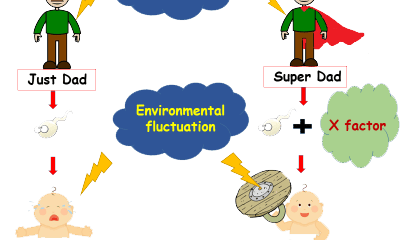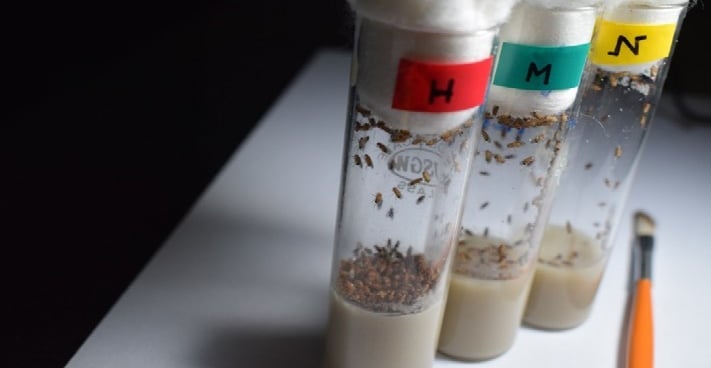
Pater's Environ Does Matter!
Purbasha Dasgupta, Ph.D. Student, Dept. of Biological Sciences, IISER Bpr
How do parents influence their offspring? The answer to this question seems fairly obvious. After all, most of us have heard of genes. For those who are still in some doubt, genes are molecules (DNA) that are responsible for all the characters in an organism. Genes are passed on from parents to offspring, resulting in parent-offspring similarities. However, parents often pass on more than genes to their offspring – perhaps as humans, we know that much better than any other organism. When I started my masters’ dissertation, I was of the opinion that non-human animals pass on only genes to their offspring. However, soon I realized that I was wrong!
Apparently, in other non-human animals, where the parents do not pass on their legacies, certain characters can still be inherited by the offspring independent of their genes. For example, the environment which the parents experience can also have an influence on the offspring's characters. Such kind of impact of the parents’ environment on the offspring is called the ‘Parental Effect’.
A number of studies show that besides the genes, mothers can pass on crucial materials needed for the early development of the embryo. These materials are usually stored in the egg. Moreover, in many animals, even after fertilization (the union of sperm and egg cell), mothers provide for their offspring to various degrees. Therefore, mothers’ condition is very obvious to influence the offspring characters. This means a good-conditioned mother is able to provide better for her offspring, increasing the offspring’s chance of survival. The effects of the maternal environment on progeny characters have been extensively studied on a variety of animals. Not only does a mother’s environment play a very important role in shaping her offspring's characters, but also, it may determine the offspring’s performance against future challenges. On the other hand, a father contributes a sperm cell which is practically just a packet of genes with a long tail that allows it to move. Since in most animals, fathers rarely pass on anything other than genes, fathers' environment seems inconsequential to the offspring's performance[1].
Surprisingly, some scientists have recently stumbled upon something really remarkable! They discovered that even fathers’ environment – nutrition, social status, etc., can have a significant impact on offspring characters and their performances. Needless to mention, that these discoveries were made in non- human animals, specifically, in insects and acorn worm. Biologists suggest that such paternal ability can be crucial in fluctuating environmental condition as it may allow the fathers to fine-tune offspring characters to enable it to face similar environmental challenges in the future[2]. Thus, if such environmental fluctuation occurs recurrently, such fathers may leave behind more surviving offspring than those who do not possess such ability (see the cartoon below). It is just like an insurance policy for the child’s better future!
Some time back, I (and some of my younger colleagues) got very excited about the prospect of exploring the potential ‘paternal effect’ (father’s non-genetic effect on offspring) by performing some experiments in the lab.


We chose to use the favorite animal system that the biologists have been using for the last 100 years, the fruit flies – scientifically known as Drosophila melanogaster. The coolest thing about the flies is that they seem to summarize the state of biology as a whole.
We know a great deal about these flies and yet there are plenty to be discovered. Population density is one of the most important components of an animal’s ecology. In nature, Drosophila, can be found hovering near ripened fruits and rotting vegetables. They usually grow in fast perishing resource patches where transient0 crowding condition is a key component of their natural ecology. Hence, like other organisms, in Drosophila too, population density is a crucial factor for determining its survival and reproductive success. So, using this system, we asked two specific questions- (i) Can a father’s experience of varying density conditions affect his offspring’s characters?
(ii) If such paternal effect exists, is it beneficial or detrimental to the offspring?
In our study, the flies were subjected to three different adult density treatments: Normal, Medium and High for two days. We then took males from these three density treatments and allowed them to reproduce with a set of untreated females. We then looked at various characters of the offspring of the Normal, Medium and High density fathers (from now onwards we will call them N-, M- and H-dads). This allowed us to assign any difference between the offspring characters and performances to the effect of the density difference that the fathers experienced. Remember, mothers were all similar. For this study, we only looked at son’s performance and the daughter part of the study is still in our experiment laundry list. Needless to mention here that as a typical scientific experiment, we conducted these experiments in large sample sizes, with as many replications as possible to gain statistical power. This made the whole study extremely laborious and long (took us more than a year!). However, in the end, the results were satisfying and surprising.
To our greatest excitement, we found a significant impact of the paternal density on the offspring performance! Offspring of the H-dads were competitively much superior than those of the M- and N- dads at the juvenile[3] stage. This shows that, like our Super Dad (Figure 1), the H-dads might have contributed some factor that led to the better performance of the offspring under a crowded juvenile condition. Based on its physical condition, a male fruit fly can also influence its female partner to lay eggs of different sizes and quality. To check if the offspring of the H-offspring were better because of such influence by their fathers, we measured the sizes of the eggs sired by N-, M- and H-dads, but did not find any difference. The paternal effect, however, was not always a boon for the heir. The sons of the M-dads were found to be poor at acquiring mates as compared to those of N- and H-dads. In Drosophila, males perform an elaborate ritual of courtship song and dance to convince the females to mate with them. The M-dads’ sons, however, were found to be equally good at their courtship performances as the sons of N- and H- dads. But, soon we found their small body size to be the main culprit behind them facing rejections. After all, Drosophila females, like human females, tend to prefer larger suitors, all else being equal.
[1]- Note that in many animals, fathers also provide for their offspring in the form of parental care – feeding the young, defending it from enemies, providing shelter, etc. [2]- Imagine a father giving his child a pill of anti-malarial drug before setting off for a vacation to a malaria endemic area.
Figure 1: Difference between ‘Just’Dad and ‘Super’Dad- while Just dad contributes only his genes, Super dad provides some additional non-genetic factor that helps his baby to perform better under fluctuating environment


Figure 2: The three adult density treatments- High (H), Medium (M) and Normal (N).
Our study is just a stepping stone towards the understanding of paternal effect and its role in evolution. Nonetheless, it has successfully addressed the questions we had initially asked. We have not only found the evidence of paternal effect in the context of varying densities but also we got to see its both beneficial and detrimental effects on the offspring. However, many questions remain unanswered. For example, how did the fathers influence the offspring characters? What may be the possible mechanisms involved? Are these beneficial and detrimental effects of paternal density context-dependent, expressing only under certain environmental condition? Our experiment is a part of a bigger picture of how such paternal effects may allow or hinder animals to survive and reproduce to the ever-changing environment.
Click here to find original research article.


